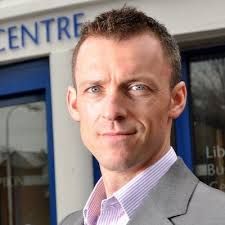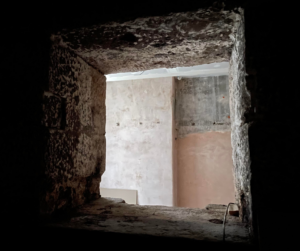I’m not going to give you loads of technical advice here, but you know that question of “what should I be doing now..?” there is a process to go through which can help in the early stages of commercial property investment.
It takes time and thought to work out your strategy and investment criteria. Think of it this way, we should be asking ourselves “why?” and then buy. But many of us just buy and then ask why later. We see what we think is a great deal and just can’t help ourselves. Impatience takes over. Sound familiar? Perhaps you started your residential investment career the same way, and the more you learned, the more you realised that not every deal would produce the same results.
There are so many different types of commercial property investment strategies you can choose from to reach your own personal and business goals. Returns in capital growth and income can be fantastic. It’s rare to be able to have both at once, but not impossible. And it’s true investing in commercial can be more complicated than residential investment, but there’s nothing you can’t learn.
We’ve gone through it too
Residential property investment is where we started but after a few years we wanted to build more scale. So we moved onto commercial investments.
We found a small multi-let (CMO) property and sold a couple of residential units to help raise the finance. There are however lots of small single let deals out there and they can be a great place to start your commercial investment career. Maybe your business can be the first tenant?
Our top 10 tips
Before you grab the first commercial property deal you come across, spend some time getting up to speed. Here are 10 top tips on how to get started in commercial property investment. A good knowledge base will reduce the risk of taking on something you may later regret.
1. Invest time in finding out about different commercial strategies
Are you going to be an active investor or a passive investor?
Option 1 ROI, effectively an interest rate.
or
Option 2 A way to build value and capital growth? The market can dictate ups and downs by determining yields which you have no control over once a property is going to be let on a long lease. Yields are determined by the markets and macro factors.
There are so many different ways to invest in commercial property. Some invest via property funds and JV’s, but in the main I am talking about direct investment. This could be offices, retail units, leisure, industrial, storage, workspace, hotels, nursing homes etc. You have to expand what you know in order to be able to work out what might match your desired outcomes. For instance, it’s no use investing in a major high street location with a 25 year lease already in place to a major blue chip if you want to grow your portfolio capital value and generate a higher level of ROI. Chances are the yield will be as low as 3-4%.
However, passive and active are two fundamentally different approaches.
2. What can commercial property do for you?
This is the part where you need to work out what you actually want. What can it do for you based on where you are right now. This gives you a framework to make judgments on opportunities as they come up. Focus on what will make the difference to you and your family.
3. Choose the strategy
So you have worked out what you want, now you can choose the strategy or strategies that will provide it for you.
Is it high street shops, single occupants, secondary towns or city centres, industrial, leisure sector, offices or commercial multiple occupancy? Understand the price you are going to have to pay. Can you afford it? I am not just talking about money but also time and head space.
There are some great returning properties out there but if you want to increase the ROI way up into the double figures, which is definitely possible, then you are going to have to put in more than just money.
4. Meet people online & offline who are investing in commercial property
Investing in property does not need to be solitary. It’s a team sport. Surround yourself with people who are already successful in the area of expertise you really want to get good at.
5. Contact local independent commercial agents
As you know there are residential sales agents who sometimes have a different department dealing with local commercial deals. Ask for an introduction.
One thing to note is that local independent agents can often be more hungry and have their ears closer to the ground. They can show you good deals even if they don’t realise it themselves.
6. Physically go and look at some real live deals
The best way to really learn is by doing. Arrange some viewings. By getting out and physically looking at and analysing deals you will begin to understand the “rules of engagement” in commercial property investing.
In terms of actually finding deals, I have always found it encouraging that the commercial property market is not very transparent. Great investment opportunities can often be disguised as bad ones. Don’t turn your nose up. As a good mentor always said to me, it doesn’t have to look pretty, what are the numbers?
Remember the process can take a while, so the best time to start is now.
7. Find a commercial property mastermind or education platform to speed up learning
There is nothing better than learning from others who are going down the same path as you are. Shared learning is so much faster than when you’re working on your own.
Over the years I have been involved in many business incubators and mastermind groups. And I have seen how much peer to peer support can lift everyone’s belief, aspirations and accountability. Conditioning really affects your outlook.
So you may think 2 houses a year is a great level of growth and your colleagues may think the same. But what if one of them had the belief they could add 30 houses and two months in they had already added 5? How would that alter your perception of what is achievable?
8. reach out to sources of commercial finance
Commercial finance is a bit more tricky to source than residential lending. Partly because the pool of lenders is smaller than residential. There are specialist commercial finance brokers. Reach out and say hi. Better still, take them a project and work through the numbers.
Most of our traditional lending has been direct with a well know high street bank. We have also raised quite a bit of private finance over the years and you should definitely consider this as an option. JV and investor finance can be very useful in commercial. Particularly if it is from a friendlier source. This could be in the form of a loan or equity. Though, a loan with interest is more cost effective than shares.
9. Narrow your focus
…and find a commercial project that works for you. One that suits your investment criteria.
Having gone through this process you should have figured out what is important to you, a couple of strategies that could deliver it and what a potential project is going to look like to help achieve your desired outcome. It is time to search the internet, hit the road, and get close to your contacts. The deals are out there to be found, often hidden under problems and dressed in wolves clothing.
Having focused on what is right for you it will be far easier to sift through the projects and work out which are going to be worth a fuller investigation.
10. Learn fast & cheap
Some of us do like to buy now and ask why later. For some it is our preferred way of learning. So if you do want to go down this route, deliberately start small to learn fast and, importantly, cheap. It helps build big portfolios. Don’t dive straight into the big scary deals. Plan in advance within a set number of years.
I have met a few people over the years with big million pound plans but years later still haven’t started. Whilst others started small and grew in all aspects: skills, knowledge, financial savvy, funding options and portfolio growth to name a few.
Bonus: Technical aspects of commercial property purchasing can be learned
Don’t get scared off by all the jargon people will start throwing at you: Vat, business rates, electing to tax, capital allowances, TOG (trading as an on-going concern) rules, tax strategies, insurance, commercial finance, deposits, LTV’s, tenant covenant, FIR leases, dilapidations, planning classifications and pension investment rules. The list goes on and on!
You don’t need to know all of them straight away. These are all pieces of the jigsaw. As the puzzle comes together the picture will become much clearer long before it’s complete.
For further information, join our Facebook group to meet others on their commercial property investment journey.
If you are in a hurry then get in touch to see how we can help.
And remember
YOU are in charge of your context and conditioning. Are you limiting yourself by what you have surrounded yourself with? If so you can actually do something about it!
So get out of your comfort zone and expose yourself to new ideas and inspirations.





